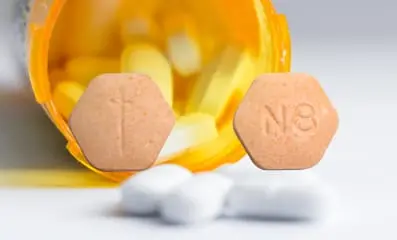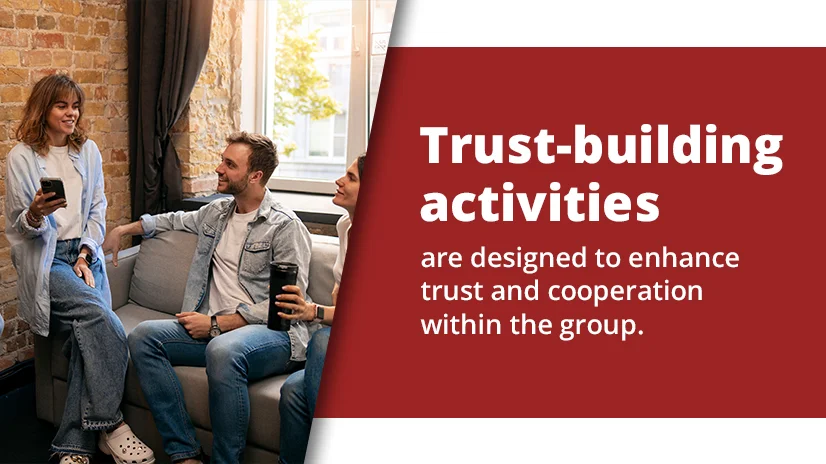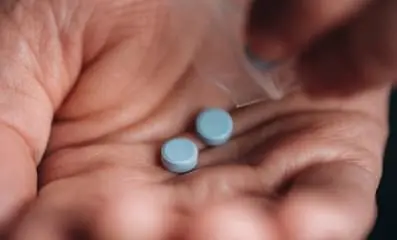
Fun Mental Health Group Therapy Activities For Adults
Group therapy activities for adults offer a vital approach to mental health treatment. These activities foster connection, enhance coping skills, and build a supportive community. These sessions allow participants to share experiences, learn from each other, and develop strategies for managing their mental health.
Interactive exercises like role-playing and creative arts encourage self-expression and empathy. Problem-solving tasks and mindfulness practices help improve emotional regulation. Through structured discussions and collaborative activities, individuals gain insights and grow together. This article will explore various group therapy activities that promote mental wellness and personal growth.
Key Takeaways
Group therapy activities create a supportive environment, helping participants build trust and share experiences. Here’s what you need to know:
- Creative activities allow for the expression of emotions and the gaining of therapeutic insight without words.
- Cognitive and board games boost mental activity and social engagement, offering entertainment and therapeutic advantages.
- Relaxation and stress management activities reduce stress, promote relaxation, and enhance overall well-being.
Indiana Center for Recovery provides personalized mental health and therapy services to support lasting recovery and wellness. For more information, call (844) 650-0064.

Group Therapy In Mental Health: Explained
Group therapy is an essential aspect of mental health treatment. It provides a supportive environment where individuals can connect and grow.
Benefits Of Fun Activities In Group Therapy
Fun activities in group therapy sessions are vital because they help individuals relax and open up. These activities promote positive social interactions, which can enhance trust and communication. They also offer a break from traditional therapy, making the process enjoyable. Engaging in pleasurable activities can reduce stress and increase motivation to participate.
Icebreaker Activities
Icebreaker activities are vital for setting the tone of group therapy sessions. They help participants feel more comfortable and connected.
Two Truths And A Lie
Two Truths and a Lie is a popular icebreaker that prompts participants to share personal information. Each person states three facts about themselves, two of which are true and one false. The group then tries to guess which statement is the lie. This activity promotes engagement and helps members learn more about each other.
Human Knot
The human knot activity involves participants standing in a circle and holding hands with two people across from them. The goal is to untangle the human knot without letting go of hands. This activity requires teamwork and communication, helping to build trust and cooperation among group members. It also adds an element of physical activity, which can be energizing.
Personal Objects Sharing
In personal object sharing, participants bring an item that has personal significance. Each person takes turns explaining the story or meaning behind their chosen object. This activity encourages self-disclosure and empathy as members listen to and appreciate each other’s experiences. It also provides a starting point for deeper conversations and connections.
Creative Expression Activities
Creative expression activities allow individuals to explore and express their emotions nonverbally. These activities can be therapeutic and enlightening.
Art Therapy
Painting and drawing are potent tools in art therapy. Participants use colors and shapes to express their feelings and thoughts. This form of creative expression can be liberating and insightful. It visually represents one’s inner world, which the group can discuss and interpret.
Collage-making involves cutting and assembling images, words, and textures from various sources. Participants create a collage representing their emotions, dreams, or life experiences. This activity allows for creativity and self-reflection and encourages sharing and discussion within the group.
Music Therapy
Drumming circles bring participants together to create rhythm and music. Each person contributes to the collective sound, fostering a sense of unity and collaboration. Drumming can be energizing and stress-relieving. It also provides a way to express emotions through rhythm and beats.
The lyric analysis involves listening to and discussing the lyrics of songs. Participants share how the lyrics relate to their own experiences and feelings. This activity encourages deep listening and reflection and prompts meaningful conversations about personal struggles and triumphs.
Writing Therapy
Journaling prompts guide participants in writing about specific topics or questions. This activity helps individuals explore their thoughts and feelings in depth. Writing can be a cathartic process, offering clarity and insight. Sharing journal entries with the group can foster understanding and support.
Group story creation involves collectively writing a story, with each participant contributing a part. This collaborative activity stimulates creativity and imagination. It also enhances communication and teamwork as members build on each other’s ideas. Creating a story together can be fun and engaging in exploring themes and emotions.
Movement-Based Activities
Movement-based activities incorporate physical activity into group therapy. These activities can improve physical and mental well-being.
Yoga And Mindfulness
Yoga and mindfulness practices involve gentle stretching, breathing exercises, and meditation. These activities promote relaxation and stress reduction. Practicing yoga and mindfulness in a group setting can enhance feelings of connection and support. These activities also help develop body awareness and emotional regulation.
Dance Therapy
Dance therapy uses movement and dance to explore emotions and improve mental health. Participants express themselves through dance, which can be freeing and joyful. This activity encourages body awareness and self-expression. Dancing in a group setting fosters a sense of community and shared experience.
Group Walks And Nature Therapy
Group walks and nature therapy involve spending time outdoors in natural settings. Walking together in nature can be calming and rejuvenating. This activity encourages physical exercise and social interaction. Being in nature can reduce stress and improve mood.
Cognitive And Board Games
Cognitive and board games stimulate the mind and promote social interaction. These activities can be both fun and therapeutic.
Puzzles And Brain Teasers
Puzzles and brain teasers challenge the mind and improve cognitive skills. Participants work together to solve problems and complete puzzles. This activity enhances critical thinking and teamwork and provides a sense of accomplishment and satisfaction.
Board Games For Group Dynamics
Board games designed for group dynamics encourage cooperation and communication. These games require players to work together to achieve a common goal. Playing board games in a group setting can be fun and interactive to build relationships.
Escape Room Challenges
Escape room challenges involve solving puzzles and finding clues to “escape” from a simulated scenario. This activity requires teamwork, communication, and problem-solving skills. Participants must work together to find solutions and complete the challenge.
Role-Playing And Drama Activities
Role-playing and drama activities allow participants to explore different perspectives and experiences, which can be insightful and therapeutic.
Psychodrama
Psychodrama involves acting out personal experiences or emotional situations. Participants take on roles and reenact scenarios from their lives. This activity helps individuals gain new insights and perspectives.
Role-Reversal Exercises
Role-reversal exercises involve participants switching roles and acting out each other’s perspectives. This activity fosters empathy and understanding, allows individuals to see situations from different viewpoints, and can enhance communication and conflict-resolution skills.
Improvisational Theater Games
Improvisational theater games involve spontaneous acting and storytelling. Participants create scenes and characters on the spot. This activity encourages creativity, quick thinking, collaboration, prompts, and communication.
Trust-Building Activities
Trust-building activities are designed to enhance trust and cooperation within the group. A therapist can strengthen relationships and foster a supportive environment through these activities.
Trust Falls
Trust falls involve one participant falling backward, trusting that their partner or group will catch them. This activity requires and builds trust between participants. It also promotes communication and coordination. Completing trust falls can enhance feelings of safety and support within the group.
Blindfolded Obstacle Course
In a blindfolded obstacle course, one participant navigates an obstacle course while blindfolded, guided by their partner’s instructions. This activity requires clear communication and trust. It also promotes teamwork and problem-solving skills. Completing the obstacle course together can be a fun and rewarding experience.
Trust Circles And Feedback Techniques
Trust circles involve group members standing in a circle and taking turns sharing personal thoughts or experiences. Feedback techniques are used to provide supportive and constructive responses. This activity promotes open communication and emotional sharing and fosters community and trust.
Discussion-Based Activities
Discussion-based activities encourage participants to share their thoughts and experiences. These activities can promote self-awareness and mutual understanding.
Guided Group Discussions
Guided group discussions involve structured conversations on specific topics. The facilitator guides the discussion, ensuring everyone has a chance to speak. This activity promotes open communication and active listening. It allows participants to share their perspectives and learn from each other.
Book Club For Personal Growth
A book club for personal growth involves reading and discussing books focusing on self-improvement and mental health. Participants share their insights and reflections on the book’s content, encouraging deep thinking and personal development.
Shared Experience Debates
Shared experience debates involve participants discussing different viewpoints on a shared topic or experience. This activity promotes critical thinking and respectful dialogue. It allows individuals to explore and understand diverse perspectives. Debates can be a stimulating and engaging way to deepen understanding and empathy.
Social Skills Activities
Social skills activities focus on improving interpersonal skills and building relationships. These activities can enhance social competence and confidence.
Social Scenarios Role-Play
Social scenario role-play involves acting out various social situations. Participants practice appropriate responses and behaviors in different scenarios. This activity helps develop social skills and confidence and provides a safe space to experiment and learn.
Assertiveness Training Games
Assertiveness training games teach participants how to express themselves confidently and respectfully. These games involve practicing assertive communication techniques. Participants learn to set boundaries and advocate for themselves. This activity promotes self-esteem and effective communication.
Relaxation And Stress Management Activities
Relaxation and stress management activities focus on reducing stress and promoting relaxation. These activities can improve overall well-being.
Guided Meditation
Guided meditation involves listening to a facilitator’s instructions to achieve a state of relaxation and mindfulness. This activity helps reduce stress and promote mental clarity. Practicing guided meditation in a group setting can enhance feelings of calm and connection.
Progressive Muscle Relaxation
Progressive muscle relaxation involves tensing and relaxing different muscle groups in the body. This activity helps reduce physical tension and promote relaxation. Practicing progressive muscle relaxation can relieve stress and improve body awareness.
Deep Breathing Workshops
Deep breathing workshops teach participants various breathing techniques to promote relaxation and reduce stress. This activity helps calm the mind and improve focus. Practicing deep breathing can lower anxiety and improve emotional regulation. Group workshops provide a supportive environment for learning and practicing these techniques.
Frequently Asked Questions (FAQ)
Mental health professionals often use fun group activities to help clients with mental illnesses. Activities like cognitive behavioral therapy games, creative ideas like vision boards, and mindful eating exercises are beneficial. Group sessions also provide a safe environment for members to share everyday experiences.
Various groups focus on substance use disorders, anxiety disorders, and bipolar disorder. Group therapy offers a safe place for mutual support and self-discovery. Therapists guide group activities that build communication skills and promote self-care. Creative activities, such as drawing or writing, engage the entire group, making therapy fun and productive.
Life skills activities for therapy groups help those with mental health issues or substance abuse. These activities can include support groups where individuals share experiences. Dialectical behavior therapy offers fun group therapy activities like mindfulness and distress tolerance exercises. Therapy groups can also engage in fun games to foster teamwork and communication.
Group leaders can have members write goals or positive thoughts on paper. Popular games like charades encourage creativity. Different types of activities, such as healthy meal planning, help recovery. This form of therapy benefits from process groups where similar issues are discussed, making it a great way to address personal problems.



